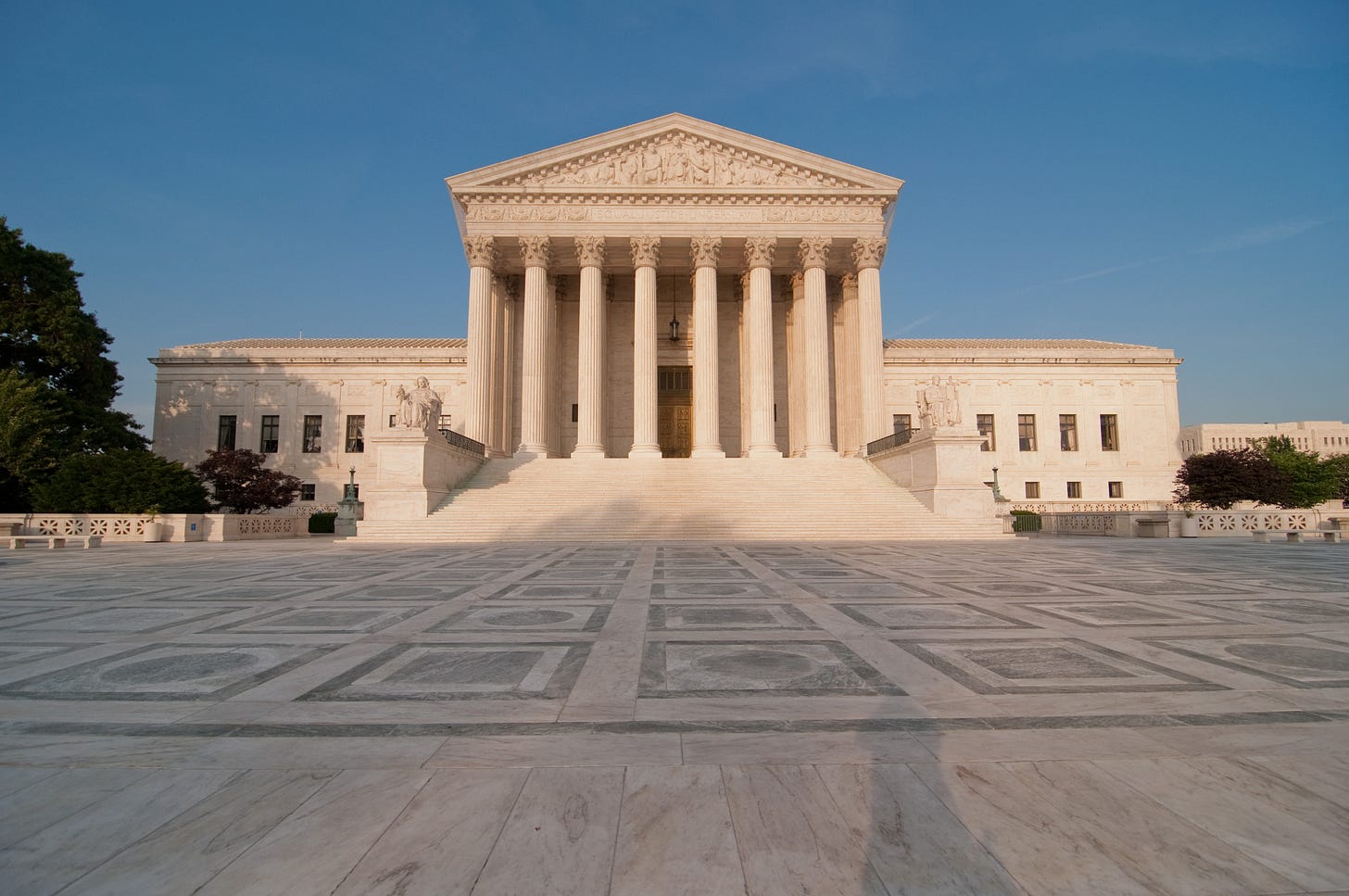Supreme Court clears way for Texas nuclear waste site, decides Clean Air Act venue disputes
A quick recap of the three cases decided by SCOTUS on Wednesday.
The U.S. Supreme Court on Wednesday issued three important opinions addressing environmental legal issues, paving the way for a nuclear waste storage facility in West Texas and giving regional appellate courts jurisdiction over important Clean Air Act (CAA) cases.
The series of decisions came alongside a major decision in United States v. Skrmetti, which upheld a Tennessee ban on youth gender-affirming care and received considerable attention soon after it was issued.
Here’s what you need to know about the climate law cases decided on Wednesday by the high court.
NRC v. Texas
In this case, the Supreme Court rejected an effort by Texas — alongside oil and gas interests — to block a federal plan to temporarily store nuclear waste in the state.
SCOTUS ruled 6-3 on procedural grounds, finding the challengers lacked standing to sue, since they weren’t technically parties when the Nuclear Regulatory Commission (NRC) licensed the storage facility in 2021.
Under the Atomic Energy Act, the justices said a party must successfully intervene in a licensing decision or be an applicant in order to seek judicial review of an NRC license.
The decision removes a major roadblock for the nuclear storage site, which was proposed by Interim Storage Partners LLC to help address a growing nuclear waste storage problem.
It also comes amid renewed interest in nuclear power to meet growing U.S. energy demands.
The license, which authorizes storage of around 40,000 tons of radioactive waste in West Texas for 40 years, was previously blocked by a Trump-appointed district court judge and the 5th U.S. Circuit Court of Appeals.
Justice Neil Gorsuch wrote the court’s dissent, joined by Justices Clarence Thomas and Samuel Alito. The dissent from the three conservatives said that the challengers had participated in the licensing, and suggested that the NRC’s rule for more formal participation may have been too formal.
Beyond that, the dissenting justices said that the Nuclear Waste Policy Act only authorizes the storage of spent nuclear waste in two locations: at a reactor or on federal land. Since the Interim Storage Partners license relates to a private site, the license violates that law, the justices said.
Oklahoma v. EPA
In this case, a 9-0 court determined that the regional U.S. appeals courts are the appropriate venue for individual challenges to certain U.S. Environmental Protection Agency decisions related to CAA National Ambient Air Quality Standards.
Those standards essentially require pollution reductions from industries in high-emitting states. The CAA also requires states to develop state implementation plans (SIPs) detailing how they will comply with the standards and ensure that pollution from their industries doesn’t drift across state lines and make it more difficult for other states to achieve the standards.
The Oklahoma v. EPA case stemmed from the EPA’s rejection of 21 of those state plans under 2015 emissions standards for ozone. The EPA said that the plans didn’t adequately address concerns that emissions from the states would not cross borders.
The states — including Oklahoma and Utah — and industry groups sued in various U.S. circuit courts of appeals challenging the disapprovals. But the 10th Circuit said that the appropriate venue for those cases is the D.C. Circuit Court of Appeals. Under the CAA, the D.C. Circuit oversees legal challenges to EPA actions that have national impacts, as opposed to regional or local impacts.
While the state plans were rejected en masse, the Supreme Court said the individual rejections were indeed locally applicable.
The challenges will now proceed in the regional appeals courts, which are considered more friendly to the challengers.
EPA v. Calumet Shreveport Refining LLC
Another CAA venue case, this one also revolves around whether certain EPA decisions are nationally or locally impactful.
The high court on Wednesday sided 7-2 with the EPA, finding that small refineries can only challenge a 2022 agency decision to reject multiple petitions seeking exemptions from federal Renewable Fuel Standard (RFS) requirements in the D.C. Circuit.
Just as in Oklahoma v. EPA, the decision rested on whether the denials were national or regional. SCOTUS said the denials are locally or regionally applicable, but fall within the “nationwide scope or effect” exemption of the CAA that requires cases be heard in the D.C. Circuit.
Under the RFS program, oil refiners and importers must blend increasing amounts of renewable biofuels like corn-based ethanol each year. But small refineries that process less than 75,000 barrels of crude oil a day can request exemptions if the blending requirements will cause undue hardship.
After several small refineries requested those exemptions, the EPA said in 2022 that it believes the extra costs can be passed through to customers, and thus would not be too much of a burden.
Small refineries challenged the denials in multiple regional circuit courts, calling them impermissibly retroactive (since they related to years that had already passed), contrary to law and arbitrary and capricious.
Most of the regional circuit courts dismissed the cases or transferred them to the D.C. Circuit, but the 5th Circuit retained jurisdiction over challenges filed there and ruled in favor of the refineries.





I'm okay with the first two decisions but very unhappy with the third. A baffling case but I think strict scrutiny should have applied and Roberts got away with a skosh of circular reasoning.